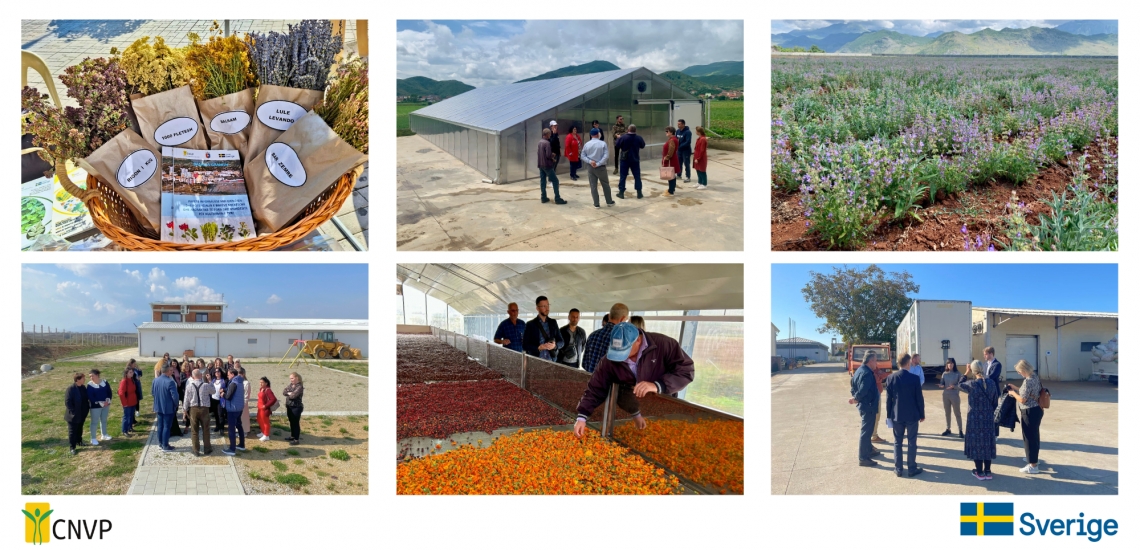News
Albania’s MAPs Sector Takes a Leap Forward with Innovative Drying Technologies

Over the past four years, the implementation of LED project by CNVP Albania, has been leading efforts to modernize Albania’s Medicinal and Aromatic Plants (MAPs) sector. By collaborating with local producers, collectors, processors, and exporters, CNVP’s LED project is introducing innovative drying technologies to improve product quality and economic returns.
The drying process is essential for preserving the potency and purity of MAPs, yet traditional sun-drying methods have long posed challenges for Albanian farmers. Open-air drying exposes plants to contaminants, prolongs drying times, and leads to the degradation of active ingredients. This results in lower-quality products, reduced prices, and economic setbacks for thousands of households involved in MAPs collection.
To address these challenges, CNVP’s LED project adopted a three-phase strategy:
- Identifying the Issues and Opportunities
Through extensive engagement with industry stakeholders, CNVP-LED found that many farmers lacked knowledge of proper drying techniques and had limited access to cost-effective technologies. The organization identified solar-powered and bioenergy-based drying solutions as promising alternatives. - Establishing Key Partnerships
CNVP-LED partnered with four MAPs exporters, a local greenhouse manufacturer, and eight collection businesses across Albania’s key regions, including Shkoder, Diber, Elbasan, Lushnje, Korce, and Berat. These collaborations aimed to enhance coordination along the MAPs value chain and encourage investment in modern drying technologies. - Implementing and Assessing Impact
The introduction of innovative drying solutions has already yielded significant results. Solar-Powered Tunnel Dryers in the Berat region have reduced drying times from several days to 17-30 hours, benefiting 75 households. Flat-Bed Greenhouse Dryers in the Devolli and Gramsh regions have a load capacity of 1.5 MT of fruits and 1 MT of herbs, with drying times reduced from weeks to days, benefiting 85 households. Bioenergy-Powered Drying Chambers in the Malesia e Madhe region are addressing sage harvest losses of over 50% by utilizing wood pellets for energy.
The success of these pilots has sparked interest from more MAPs exporters and collection businesses, paving the way for broader adoption. CNVP-LED continues to work closely with industry players to improve access to finance, organic inputs, and a more favorable business environment in Albania.
With these advancements, Albania’s MAPs sector is moving toward sustainable growth, ensuring higher quality products and improved livelihoods for rural communities. The initiative marks a significant step in transforming traditional agricultural practices and strengthening Albania’s position in the global MAPs market.
